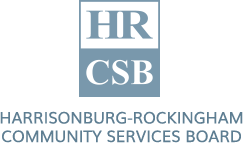How long will I stay at Arbor House?
Length of stay is determined by individual’s needs, not a set length of time. The average length of stay is 7-10 days.
What should I bring?
- All medications, in original containers.
- Supportive medical equipment, if applicable (C-PAP, diabetic testing equipment/supplies, etc.)
- Personal hygiene items (i.e. deodorant, toothbrush, toothpaste, feminine hygiene products, disposable briefs, etc.)
- Money for copays (for if/when new medications are prescribed.)
- Four to five changes of clothing
- Photo ID & insurance card(s)
- Comfortable footwear for walking
- If you are a smoker, enough tobacco product to last the duration of your stay
What shouldn’t I bring?
- Electronic devices (tablets, computers, cell phones, etc.)
- Valuables (jewelry, expensive clothing items, etc.)
- Weapons
- Perfumes, body fragrances, etc. (due to potential allergies of others)
How will I make phone calls?
Cell phones are not allowed, but a house phone is available to make local calls. If you are coming from some distance, you can bring calling cards to make long-distance calls, or you can make a long-distance call and then request they call you back.
What actually happens during my admission?
- Your belongings are inventoried.
- Certain items not permitted on the unit (i.e. razors) are locked but can be retrieved for use at appropriate times.
- Certain items not permitted (i.e. cell phones) are locked up and returned upon discharge.
- You will be asked to comply with Bed Bug protocol, which requires you to change in to scrubs, dry all clothing in dryer (shoes, belts, purses, etc. are put on rack in dryer so they aren’t tumbled.)
- You may wash your clothing also, but putting clothing in the dryer is required.
- Once laundry completed, you may change back into your own clothing.
- Books, journals, paper products, etc. are also subject to this protocol and will be dried on a rack in the dryer.
- You will meet with a mental health professional who conducts an interview with you, and helps to generate your treatment plan.
- You will receive a health screening with the nurse.
How do I get referred?
Your local Community Services Board may refer you. Your local Emergency Department can help you with contacting local Community Services Board as well.
What kind of treatment will I get?
- DBT-Informed Treatment.
- (DBT stands for Dialectical Behavior Therapy.)
- This is a cognitive behavioral therapy approach which teaches how to more effectively manage emotions.
- Group Therapy – topics vary depending on individuals’ needs
- May include, but not limited to: depression, anxiety, grief, resilience, etc.
- Accudetox
- Acupuncture needles are administered to prescribed points on the ear.
- Magnetic beads are attached to prescribed points on the ear.
- Participation with needles and/or beads is not mandatory.
- One-to-one session(s) with staff
- Wellness activities
- Psychiatric Evaluation by psychiatric prescriber
- You will be seen by the prescriber 2-3 times a week.
What is expected of me?
- Wake Up Call at 7am
- Program participation throughout the day (roughly 9a-9p daily)
- Maintain confidentiality of other group members
- Cooperation with staff and other residents
- Bedtime is 11pm
Can I have visitors?
Visitation is on Saturday and Sunday, between the hours of 2pm and 5pm. All visitors must be approved by Arbor House Staff.
Can I leave during the day?
While you are enrolled in the Arbor House program, you will receive maximum benefit by fully participating in the programming. For those who may have a medical necessity to leave, accommodations may be made, but the general practice is that you don’t leave during your stay.
Can I smoke at Arbor House
Yes, smoking (and other tobacco use) is allowed between groups and during evening hours and is limited to the courtyard area outside Arbor House. You should bring enough to last the duration of your stay.
For more information about our Crisis Stabilization Services please call 540.434.1941
